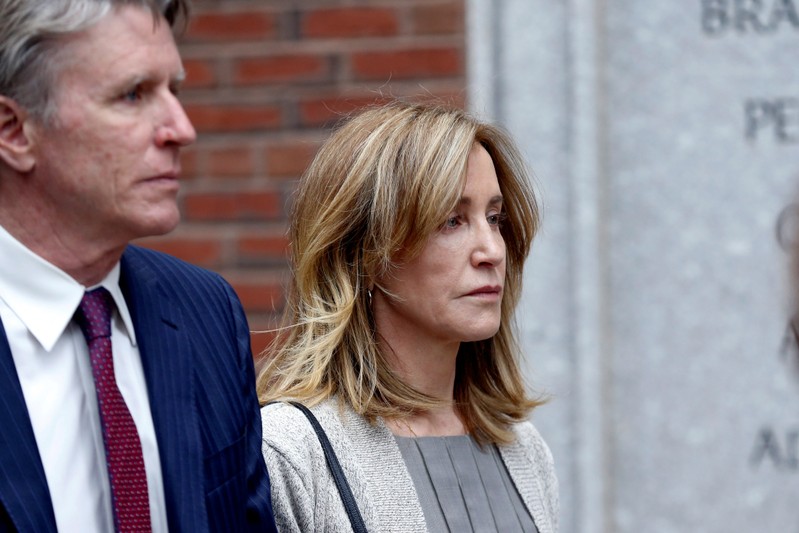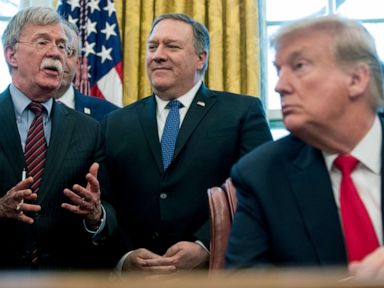
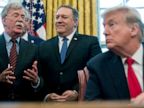

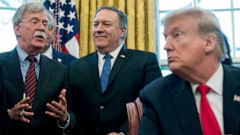
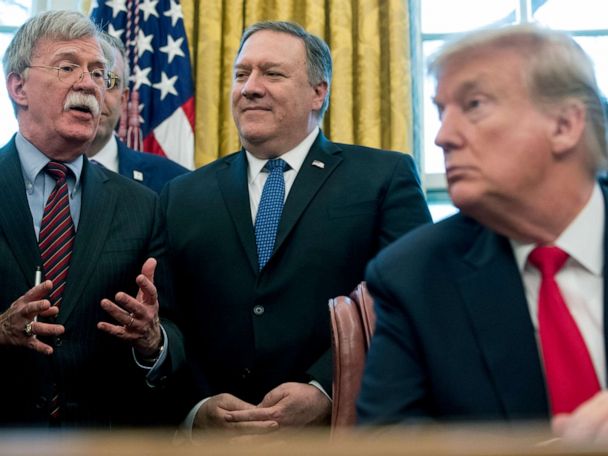
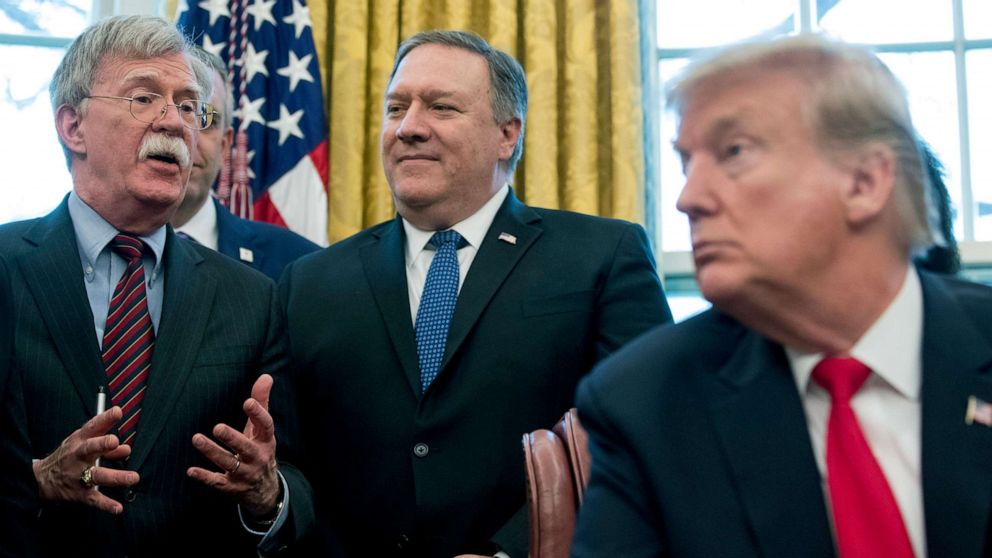

After months of political chaos, increasingly tight U.S. sanctions, and the threat of military force, President Donald Trump is warning of a “very tough” new stance on Venezuela after the departure of hawkish National Security Adviser John Bolton.
Trump’s comments tweeted Thursday — the day after Bolton’s ouster — seemed to be more bravado than strategy, and come amid heightened tensions between the government of Nicolás Maduro and his neighbor Colombia, with growing fears of clashes that could make an already destabilizing situation worse.
The Trump administration has made clear this week it would offer “full American support” for Colombia in the event of any conflict, as the U.S. and 11 other countries invoked a regional treaty of self-defense that was last used after the Sept. 11 attacks to increase pressure Maduro.
“My views on Venezuela, and especially Cuba, were far stronger than those of John Bolton. He was holding me back!” the president tweeted.
In fact, my views on Venezuela, and especially Cuba, were far stronger than those of John Bolton. He was holding me back! https://t.co/FUGc02xiac
Trump seemed to be combating speculation that he would take a softer approach to foreign policy issues after Bolton’s departure, given Bolton’s militaristic views like support for regime change in Iran or a preemptive strike on North Korea. But after a phone call with Sen. Marco Rubio, R-Fla., who’s urged a tough stance on Maduro, Rubio and Trump said the administration’s policy will be stronger.
It’s unclear what that means. In January, Bolton held a notepad in the White House briefing room that clearly displayed his scribbled notes, “5,000 troops to Colombia.” It prompted some concerns about a U.S. military operation, although it was mostly waved off as a Bolton psychological operation.
But Trump has also reportedly considered a naval blockade of the country. His administration imposed an economic embargo on Venezuela in the beginning of August, freezing all Venezuelan assets in America’s jurisdiction and, critically, allowing the U.S. to impose sanctions on anyone doing business with Maduro.
Beyond a sharp escalation in that economic pressure, the Trump administration continues to say that “all options” are on the table, but it seems unlikely Trump would use military force in Venezuela given his campaign pledge to end “endless wars.”
Still, there is growing concern that after months and years of chaos, Venezuela’s crisis could soon turn sharply violent. The opposition-controlled National Assembly declared Maduro illegitimate in January and named its president Juan Guaidó as the country’s interim leader, but even with the backing of the U.S. and 54 other countries, they have been unable to drive out Maduro.
Negotiations sponsored by Norway and held in Barbados are all but dead after Maduro canceled the latest round in early August because of the U.S. embargo. In the weeks since, a diplomatic solution seems even less likely.
For his part, Maduro, the socialist leader supported by Russia and Cuba, dismisses the opposition as a U.S.-backed coup and last year created a new legislature in elections that were condemned as a sham. While he still controls the country’s armed forces and maintains the support of its military leadership, it’s unclear how strong his support is among the people, who have suffered after years of corruption and economic mismanagement choked the economy and caused hyperinflation and food and medical shortages.
The resulting humanitarian disaster has driven over 4 million refugees from the country, according to the United Nations refugee agency. if existing conditions do not change or are exacerbated, the number could reach up to 8.2 million by the end of 2020, according to the Organization of American States, or OAS. By comparison, 6.7 million Syrians have fled the country as refugees.
Those refugee flows have had a straining effect on Venezuela’s neighbors, with over one million in Colombia. The cross-border flow has raised tensions between the two South American neighbors, in particular the movement of Colombian rebel groups that Colombia and the U.S. say Maduro is giving safe haven to.
In late August, a former commander from the Colombian rebel group FARC called for a return to arms. Colombian President Ivan Duque blamed Maduro for ceding territory in western Venezuela to allow him and another Cuban-backed Colombian rebel group known as ELN to grow in power.
Amid those accusations, Maduro ordered a series of military exercises near the two countries’ border this week, prompting Colombia’s military to go on “high alert,” a senior military commander said Wednesday, according to Reuters.
The U.S. pledged Tuesday “Colombia will have full American support” if there were any cross-border attacks, as special envoy for Venezuela Elliott Abrams said, adding later, “We should all worry about whether the Maduro regime intends to try deliberately to escalate tensions, and we all need to keep our eye on that.”
The invocation of a self-defense pact also has people on edge. On Wednesday, Guaidó, the U.S., and ten other countries voted at the OAS to trigger the Inter-American Treaty of Reciprocal Assistance, or TIAR — a move that has not happened since the Sept. 11 attacks.
The move will allow the countries to meet and “collectively address the urgent crisis raging within Venezuela and spilling across its border through the consideration of multilateral economic and political options,” Secretary of State Mike Pompeo said Wednesday.
While critics, including Maduro’s government, said it could lay the groundwork for a joint military intervention in Venezuela, Abrams said that wasn’t the case: “It is wrong to think — some people do — that, ‘Oh, this is military action, this is the invasion’,” he told reporters Tuesday, saying it was only meant to “better integrate our responses.”

